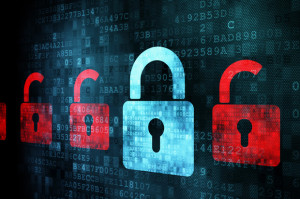
Online Reviews can make or break a hotel's reputation these days. Poor customer service and dirty rooms are some of the more common negative reviews but can be subjective and often don't tell the whole story. The effects of these reviews can quickly be addressed, and the other positive reviews will help mitigate any adverse impacts the bad ones may have caused. But what happens when a guest's identity gets stolen, and the leak can be traced back to your hotel? Those reviews are going to have a much more damaging effect. When identity thieves steal this information, they don't stop at just one guest. They will take as many as they can get. This can quickly drop your hotel's review scores all over the internet, causing you to no longer appear on searches and driving guests to your competitors. So what can you do to keep this from happening?
Internet Security goes beyond just your computer and software. External firewalls can provide a basic level of security that is often overlooked. Most modern routers will include some level of firewall security. There is a big difference between consumer-grade equipment you can purchase from an electronics store and commercial or business-grade equipment. These services are typically more expensive (some may require subscription services), but they offer a much more comprehensive level of security and support.
Regardless of the hardware you choose, it is vital to keep your hotel's computer on a wired network. This network should be separate from anything your guests will have access too. If these computers are connected to a Wi-Fi network at all, they are at higher risk if someone is trying to gain access to your system. Keeping the guest's web separate from the operations, one can also help to keep the day to day business of the hotel running smoothly. Sharing the bandwidth between the guests and desk can be problematic when you have a lot of guests using video streaming services like Netflix. Newer Property Management Systems are always connected to the internet, and a slowed connection can drastically reduce the hotel's productivity.
Microsoft has discontinued support for the aging Windows XP operating system, and this could mean big problems for the nearly 400 million machines still running the system. Chances are some of your computers are on that list. As the internet continues to grow and evolve, older systems like Windows XP are left vulnerable to attacks. Depending on the size of your property, Upgrading your computers to a newer operating system may be the most expensive option. It might also be one of the most important.
Why is this so crucial? Most hotels are using Extranets or Central Reservation Systems to manage most of their bookings. This, combined with the information stored in your PMS, contains all of your guest's information. If these machines aren't properly secured, hackers can do irreparable damage to your guest's finances and your property's reputation. Hackers exploited similar flaws and stole information from over 600,000 guests around the world, totaling more than $10 Million in fraudulent charges.
Almost everything online requires a username and password these days, and trying to keep track of that information can be difficult. People will often reuse a password for multiple services. If one of those services becomes compromised, the damage could spread too many other systems as well. Letting your employees assign their passwords is a great way for them to remember them. Chances are they will reuse ones from their personal lives. Chances are those may be among the most common passwords used today. This is why it's essential not to use simple user names as well. Using a combination of first and last names is an easy way to create unique and easy to remember usernames, but they are also among the least secure. If the potential threat is coming from a guest, they can quickly get an employee's name and can try and guess the rest. Assigning employee numbers internally can be a useful solution for creating more secure login credentials.
With how competitive the hotel industry is, protecting your guest's personal information is as important as your property's reputation. Making sure your network security is up to par is a great way to do both and can help to set you apart from your competition. Taking steps to ensure your guest's personal information is an amenity that not a lot of hotels are advertising. And as services like Privacy Atlas become more popular, guests will soon be able to include network security in their search criteria when choosing a hotel.
Keeping front-desk computers on a wired network separate from guest Wi-Fi blocks intruders, prevents bandwidth slowdowns, and safeguards reservation data so daily operations remain smooth.
Hotels should choose business-grade firewalls or managed security subscriptions that offer advanced threat detection, frequent updates, and professional support, far beyond the limited protection of consumer routers.
Windows XP receives no security patches, leaving many vulnerabilities open. Unsupported systems can expose PMS and reservation portals, allowing malware to steal guest identities and credit card details.
Assign unique numeric employee IDs as usernames and require complex passwords with mixed characters. Enforce regular changes and ban password reuse across personal accounts to thwart guessing or reuse attacks.
Stolen guest identities lead to fraudulent charges and flood review sites with complaints, dropping search rankings. The hotel may face legal costs, fines, and lost bookings, harming revenue and reputation.